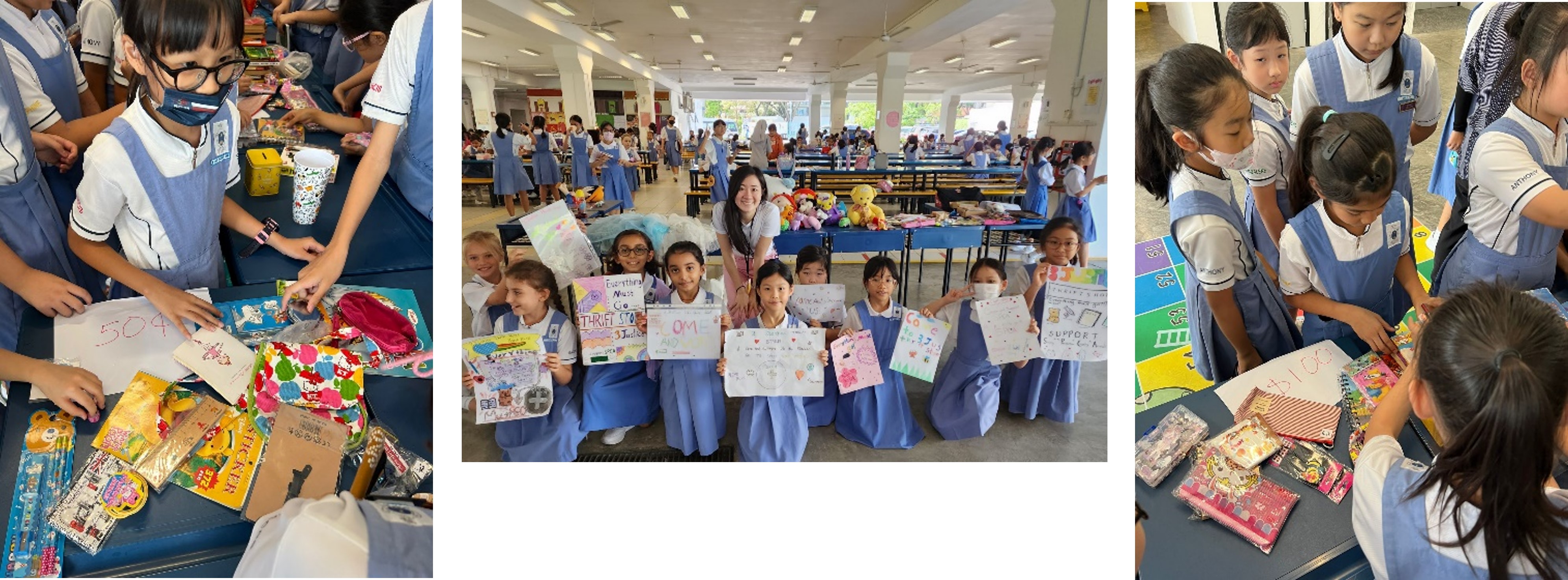Mathematics Department
Mathematics Department
Objectives
-
To foster the joy and love of learning Math
-
To develop necessary mathematical concepts and skills
-
To develop cognitive and metacognitive skills through a mathematical approach to problem solving
-
To develop students to think, communicate and reason logically and critically
-
To empower students to be leaders in facilitating Mathematics learning
MOE’s Mathematics Framework
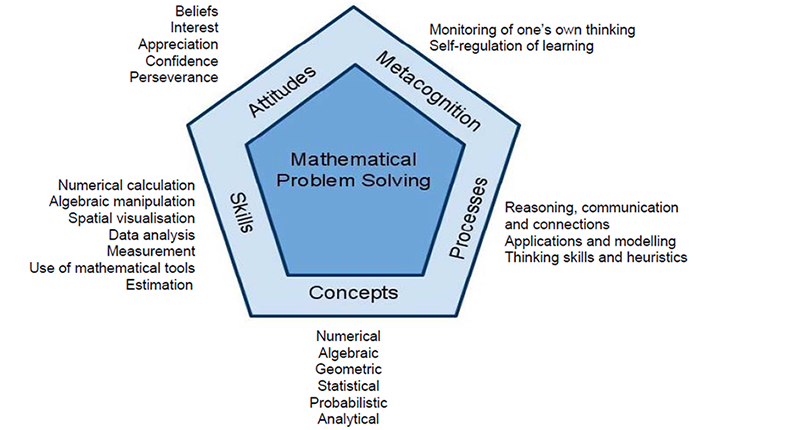
The MOE’s Mathematics Framework above sets direction and provides guidance for the school’s teaching and learning, and assessment of mathematics. As the central focus of the framework above is mathematical problem solving, the school ensures that the pupils are given opportunities to solve problems using mathematics. This is done through the deliberate teaching of process skills, integrated with the learning of concepts and skills.
Programmes:
Let’s Have Fun with Math @ SACPS
-
Math Playground – to provide students with a wide variety of games that they can choose to play during recess, after school or Learning Through Play programme.
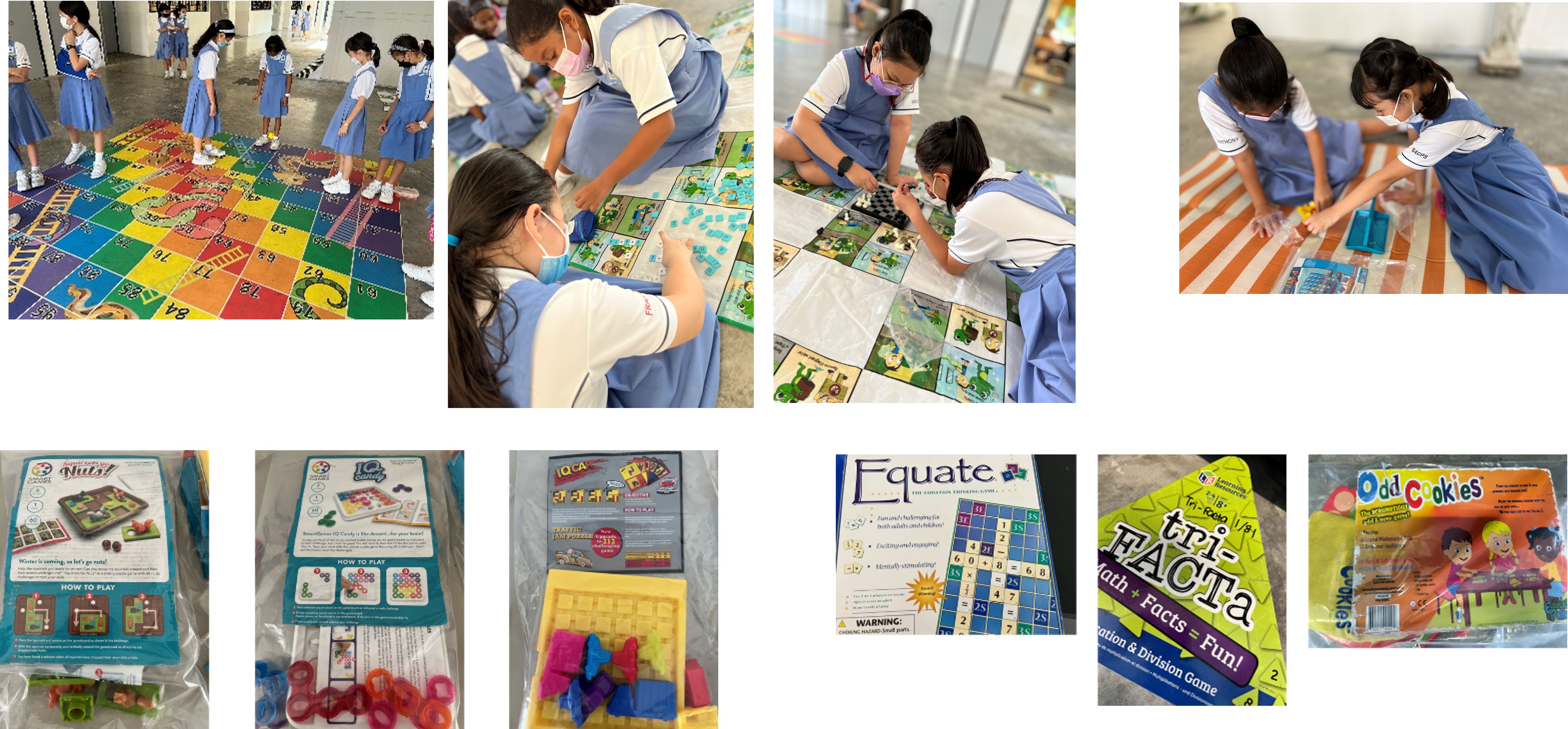
-
Fluency through Games - to provide students with fun ways to develop their number sense
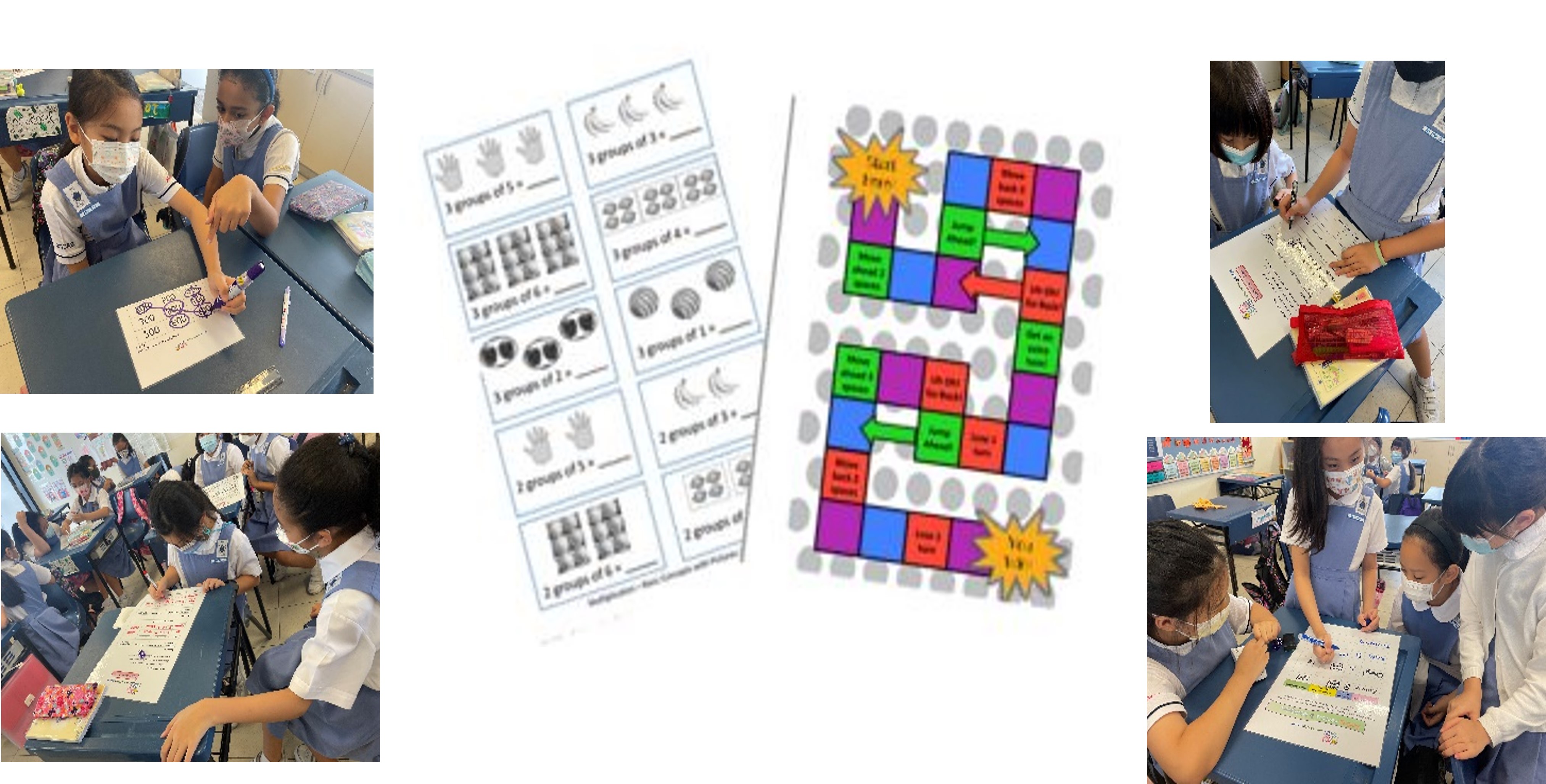
-
Math Bi-monthly Competitions by levels - to provide students the opportunity to strive for personal achievement while providing them an encouraging environment to compete, excel and honour students’ courage and abilities.
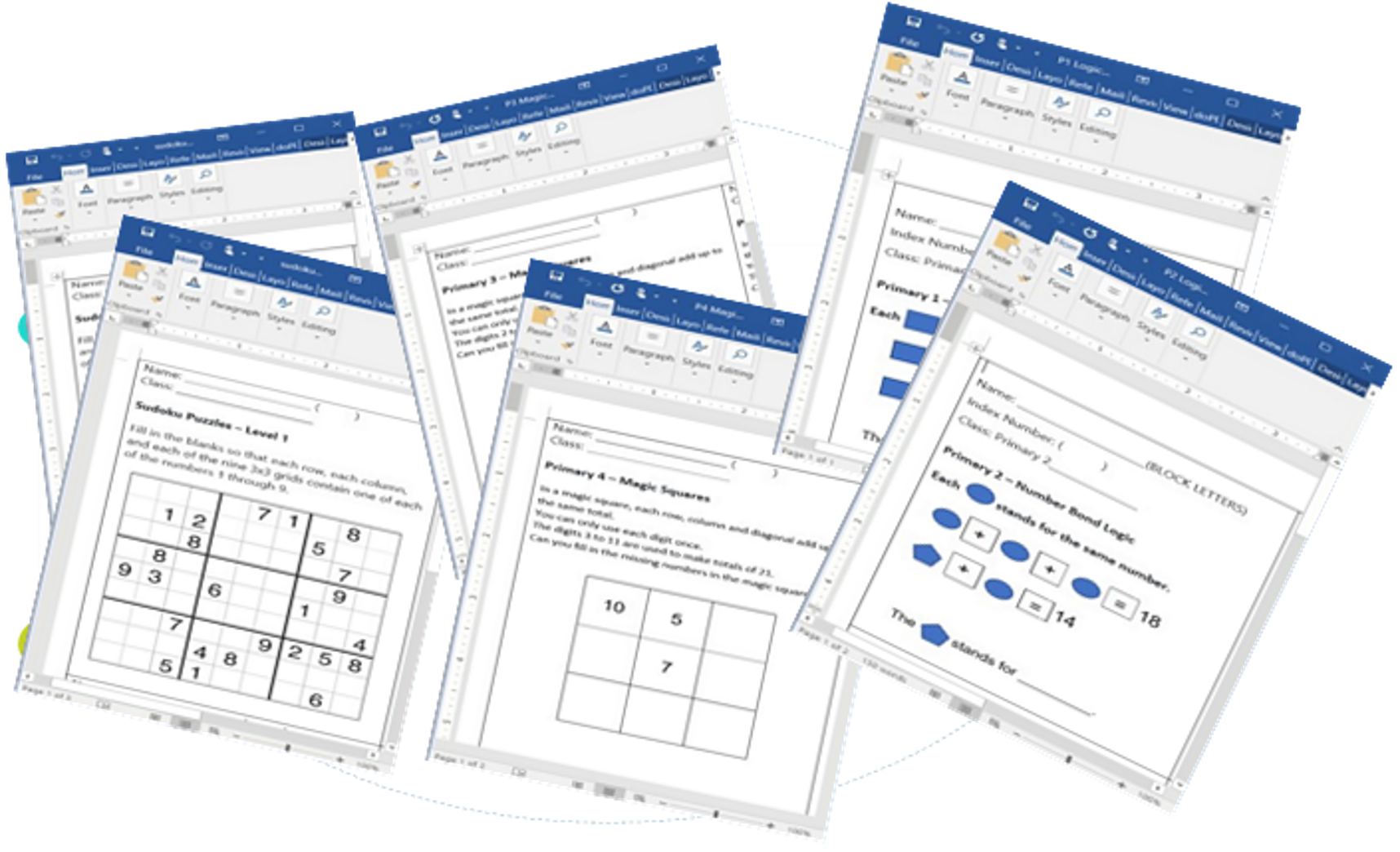
-
Multiplication Challenge - to strengthen pupils’ speed and accuracy in multiplication.

-
E2K - to develop students’ mathematical reasoning skills and deepen their conceptual understanding through an inquiry approach
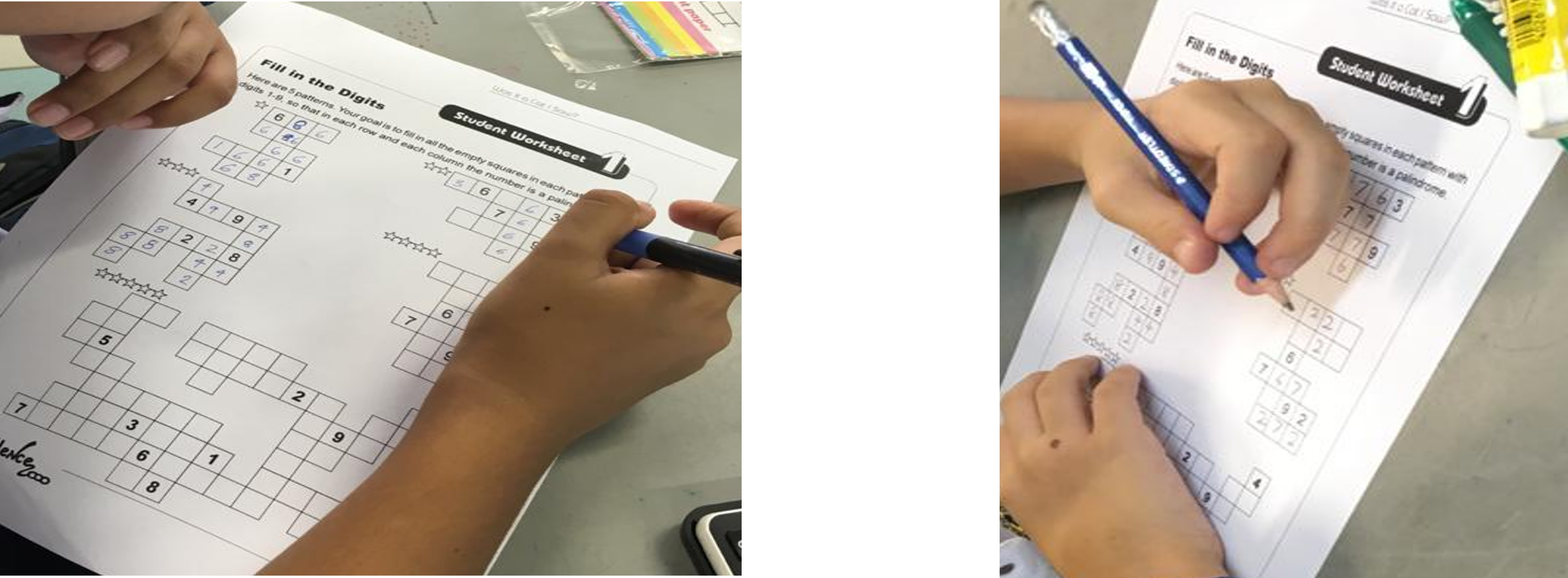
-
National Math Competitions - to discover students’ talent through solving challenging problems and/or carry out innovative and creative work in math, different from those learnt in class.

Math Learning Experiences @ SACPS
Learning Mathematics is more than just learning concepts and skills. Equally important are the cognitive and metacognitive process skills. These processes are learned through carefully constructed learning experiences.
• Learning Experience Activities in the Topical Worksheets - to discover mathematical results and be engaged with mathematical experiences using manipulative which allow them to see the relevance of what they learn in class with their daily lives.
• Mini Projects - to provide students with hands-on learning experiences that will give students an understanding of how math works in and around them and facilitate their creativity and knowledge in real life situations that involve mathematical concepts.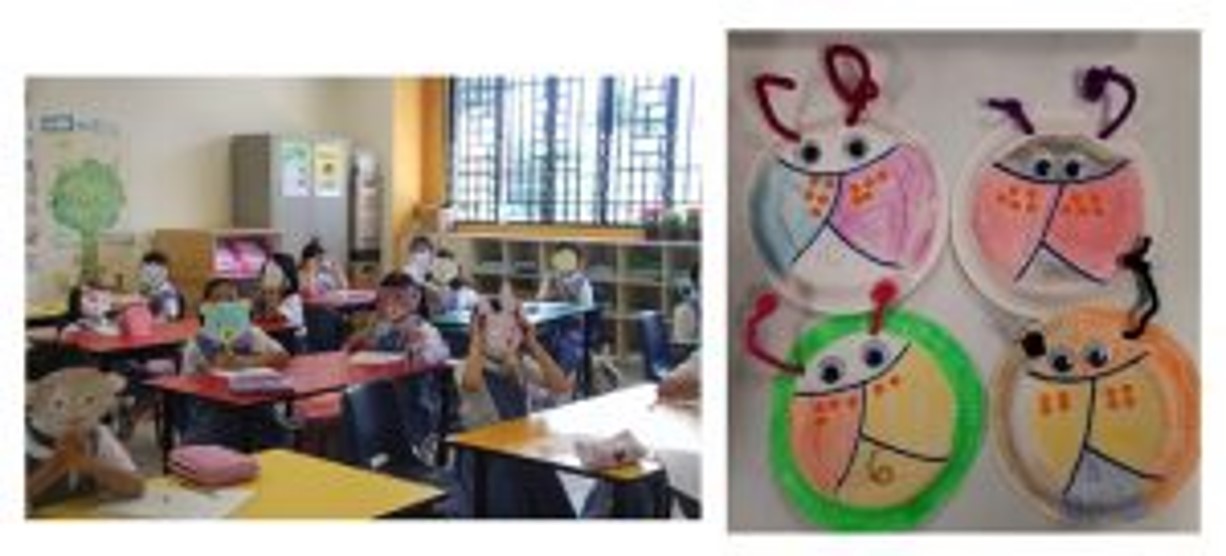
• P1 A-Math-zing Race - to challenge students’ ability to collaborate with others, think critically and solve Mathematical problems effectively.

• Learning Journeys
P1 LJ to the Zoo - to immerse in nature and be amongst the animals while solving related mathematical problems. P2 LJ to the Supermarket – to have a real life experience with numbers and money.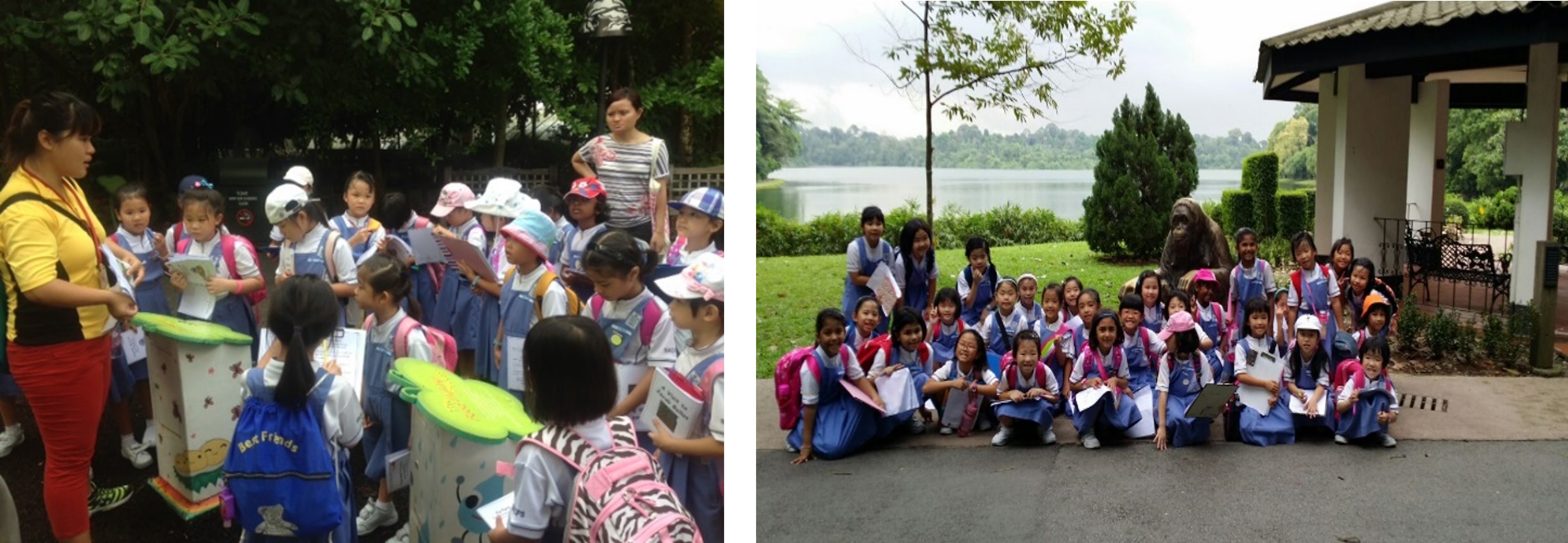
P2 and P3 Thrift Store – to apply students’ knowledge of money when selling and purchasing
